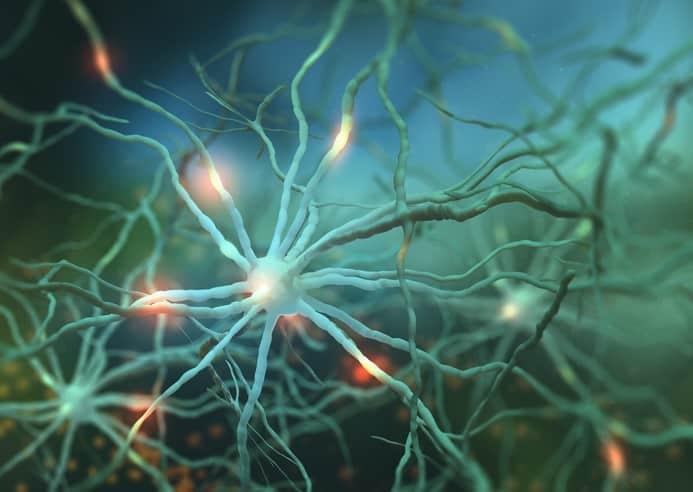Introduction. Impulsivity

Emotional instability is a ubiquitous human trait. The lack of control of someone’s actions can appear in the context of different disorders. The best known is OCD (Obsessive Compulsive Disorder).
In this article we present less frequent disorders possessing their own characteristic and categorized as different diagnostic entities. They belong to the group of ailments called Impulse Control Disorders (ICD).
What differentiates human beings from creatures of lower sentience—is the evolution of the prefrontal cortex and its sophisticated nature that allows us to exercise control over ourselves. Self-control or self-governance has many signatures; however, all incorporate the initial concept of effortful self-regulation. According to Sigmund Freud, self-regulation generates from a conflict between two competing psychic organisations—the impulsive ID and the critical Superego. Consequently, a permanent entanglement between our impulsive nature and self-controlling consciousness is a central characteristic of being a human.
Impulse Control Disorders (ICD)
Normal behaviour comprises both reactive and indifferent patterns. However, psychopathology results from diminished self-regulation leading to disinhibition. Disinhibited psychopathology patterns are identified as “impulse control disorders (ICD)” in the Diagnostic and Statistical Manual of Mental Disorders (DSM-5).
ICD, as defined in the DSM-5, comprise several disorders, including
- oppositional defiant disorder (ODD)
- conduct disorder (CD)
- intermittent explosive disorder (IED)
Pathological gambling, which earlier belonged to impulse control disorders, in DSM-V exists as a gambling disorder in the section of addictive disorders. Similarly, trichotillomania was relocated from impulse control disorders to obsessive-compulsive disorders.
Oppositional Defiant Disorder (ODD)
ODD signs generally become noticeable during preschool years. Sometimes, ODD starts later but usually before early adolescence. ODD very often co-occurs with attention deficit hyperactivity disorder (ADHD) in children.
The symptoms of ODD make up three following domains:
- irritable and angry mood,
- vindictiveness and
- defiant/quarrelsome behaviours.
To be diagnosed with oppositional defiant disorder, the child should have at least four symptoms and signs from these three domains for at least six months. The symptoms may be limited to one setting (predominately the household). However, the child should manifest these behaviours during interaction with at least one person who is not a brother or sister.
ODD symptoms highly interfere with family and social life and school performance. Furthermore, conduct disorder follow ODD in about 30% of children.
Conduct Disorder (CD)
CD features a pattern of the persistent and recurring violation of major societal standards and rules and the rights of other individuals.
Conduct disorder diagnosis applies to children and teenagers under the age of 18. For a diagnosis of CD, the child should manifest at least three symptoms during the past year from the following domains:
- aggression toward people or animals
- destruction of property
- theft or deceitfulness
- major violations of norms and regulations
These symptoms involve breaking into a property or car, stealing, setting fires and destroying property, forcing others into sexual activity, cruelty to people and animals, threatening, bullying, etc. In addition, the CD symptoms include running away from home, school non-attendance and breaking curfew.
CD has three ages of onset: childhood-, adolescent- and unspecified-onset.
Clinicians often see CD as the antecedent to antisocial personality disorder (ASPD). However, not all children diagnosed with conduct disorder will develop ASPD as adults.
Intermittent Explosive Disorder (IED)
IED results in an inability to control own aggressive urges or impulses. This disorder presents as vocal aggression, about twice a week for three months or three behavioural explosions destroying property within a year. To be diagnosed with IED, an individual must be at least six years of age with adjustment disorder ruled out. The symptoms usually first emerge in preadolescence or adolescence. IED typically doesn’t start after age 40.
Aetiology of Impulse Control Disorders
The precise aetiology of impulse control disorders remains unidentified. However, scientists agree on the multifaceted origin comprising genetic, environmental, social and biological contributions.
Genetics may play a significant role as young people with oppositional defiant disorder are often the offspring of parents with mood disorders. Similarly, those with conduct disorder are often the progenies of individuals with antisocial personality disorder, substance use disorder, attention deficit hyperactivity disorder (ADHD) or schizophrenia.
However, this association may be considered environmental, as parents suffering from the mentioned disorders may create a dysfunctional household environment, thus representing environmental factors.
Social influences contributing to the aetiology of impulse control disorders include deviant peer communication, abusive environment, neglect, violence and low socioeconomic status.
Finally, scientists suggest that people suffer from ICD due to biological disturbances, including decreased basal cortisol activity. Others have posited that originators of ICD are cognitive shortfalls, such as learning disabilities.
Treatment and Management of Impulse Control Disorders
There is no standard treatment modality exists for Impulse Control Disorders.
Yet, in a setting of hostility and aggression, psychiatrists may find it necessary to prescribe antidepressants, mood stabilisers or atypical neuroleptics. Furthermore, if ICD is comorbid with anxiety or depression, psychiatrists and psychologists have to include that in their treatment plan.
Psychological therapies that proved their value in treating ICD comprise cognitive behaviour therapy (CBT), parent management training (PMT) and multisystemic therapy (MST). Effective psychotherapeutic interventions reduce positive reinforcement of unwanted behaviours and aim to apply adequate parenting strategies.

Diana Tutschek
Clinical Psychologist, Marriage & Family Counselor
(British Board)
Call +971 4 457 4240
Bibliography:
Fariba, K., & Gokarakonda, S. (2022). Impulse Control Disorders. Retrieved from https://www.ncbi.nlm.nih.gov/books/NBK562279/
New Oxford Textbook of Psychiatry. (2020). Impulse Control Disorders. DOI: 10.1093/med.


